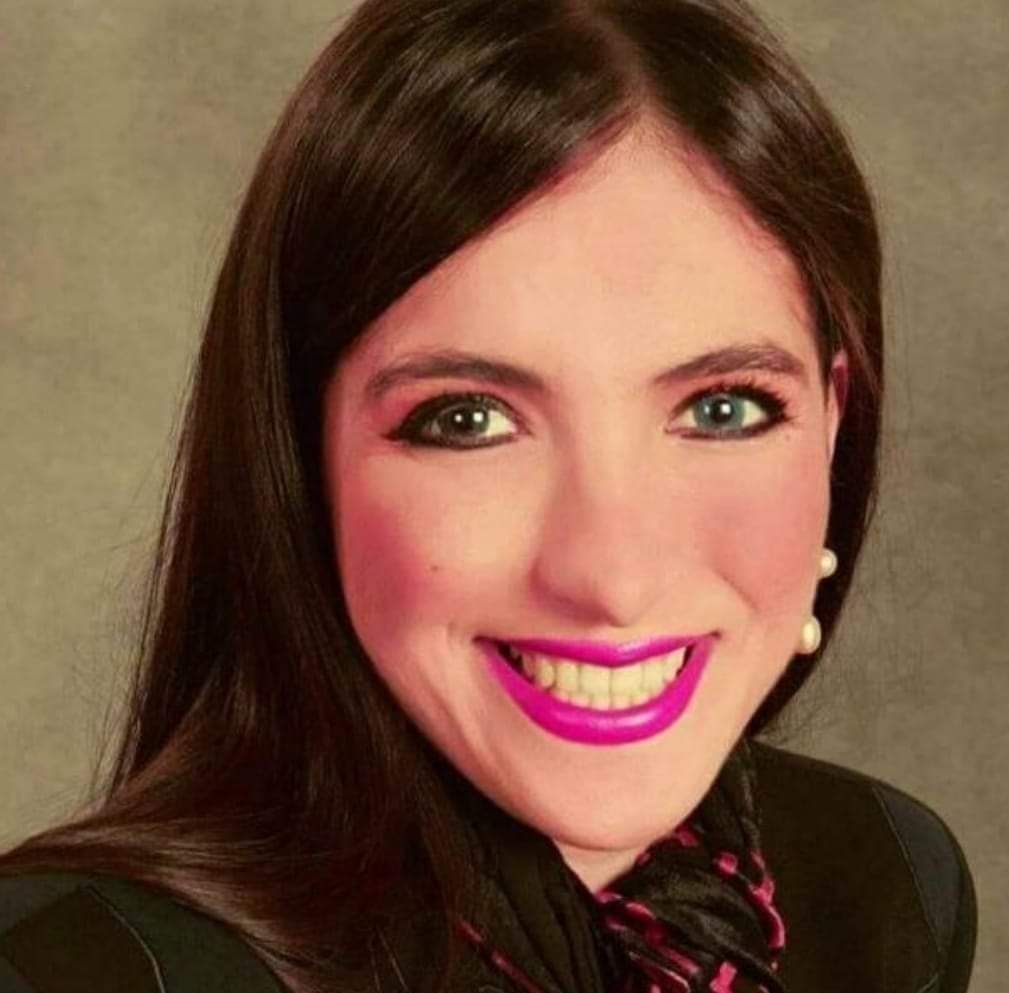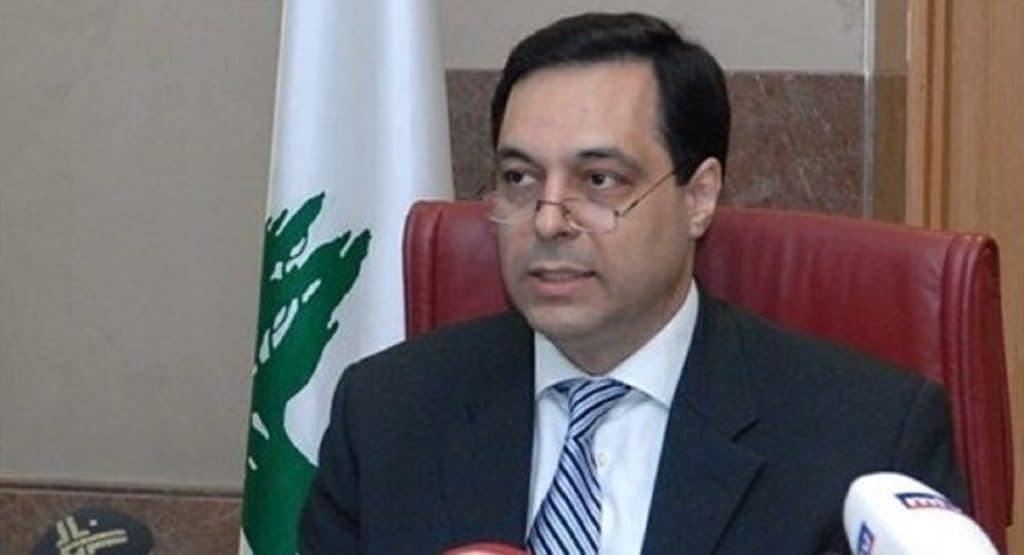Denis Korkodinov – Interview with Ornella Sukkar
In Lebanon, as a result of lengthy negotiations between representatives of various political blocs, a new prime minister was elected. He was the former Minister of Education Hassan Diab. He will have to solve the main problem that caused the protests – the formation of a capable government capable of leading Lebanon out of the deep economic crisis. Meanwhile, the election of a new head of the Lebanese government did not in the least reduce the intensity of the protest movement, which is rapidly acquiring the character of an interfaith struggle. This significantly complicates the process of forming a new cabinet of ministers, since most of the ministerial portfolios, most likely, will be determined not by the country’s leadership, but also by the street.

Especially for World Geostrategic Insights, we talked about this with Ornella Sukkar, Lebanese journalist and political observer, director of the Institute for Future Concepts.
1. December 16, 2019 in Beirut, social unrest resumed due to the publication on the Internet of a video with insults from Shiite high priests. Hundreds of angry supporters of Hezbollah and Amal political parties took an active part in clashes with law enforcement. This event, in my opinion, was a turning point in the Lebanese protest movement. So, if until December 16 the protest actions were exclusively super-confessional, when the main motive for the protesting citizens was the problems of public administration, and not religion, then now, after insulting the Shiite population, the main bet will most likely be made on inter-confessional contradictions, in which the main Shiites will be the driving force. Is it really? Do you think that the video, which triggered the social unrest on December 16, 2019, was intended to shift the responsibility for the protest movement in Lebanon to Shiites?
ORNELLA SUKKAR: The situation in Lebanon is similar in many respects to what happened in Syria. The central government is trying to neutralize the protest movement, which is clearly interfaith. But I would like to emphasize that the very important problem of Lebanon is no different from the inter-religious and inter-faith crises and conflicts that occur in the Arab world.
A common feature of these crisis manifestations is the inability to real democratic development. This, of course, lies in the responsibility not only of the country’s leadership, but also of the protest participants, who still have not presented a clear vision of a way out of the crisis and their reform program.
Lebanon lives in a period of unrest and chaos, since no one is ready to take the initiative and propose a single national project for transformations that would not be based on nepotism, corruption and the quota system.
I suspect the Shiites do not want to pursue anyone. And it seems that things are going towards settlement, reconciliation and reform. Shiites are part of the Lebanese structure and cannot be excluded from it.
In order to get out of this “dark tunnel”, a national compromise must be reached. And everything went to this. But there are certain political forces that are not interested in order. They do not want to recognize the reality that arose after October 17, 2019. Therefore, they try to resort to various provocations in order to ignite the fire of hostility and insult their opponents.
2. On December 19, 2019, as a result of lengthy negotiations, the former Minister of Education, Hassan Diab, became the Prime Minister of Lebanon, for whom 128 deputies of the Lebanese parliament voted. Will the fact of the election of the new head of the Lebanese government be the basis for the cessation of protests in the country? What difficulties await the new Lebanese prime minister in the exercise of his powers?
ORNELLA SUKKAR: The conditions are generally positive, especially after the statement by Hassan Diab, appointed by the Prime Minister of Lebanon, that he will not retreat, even if he cannot form a government. This indicates that there is an agreement to resolve the situation in Lebanon.
Regarding the issue or protests, after the election of Hassan Diab as Lebanese Prime Minister, the unrest will continue, as the protesters’ demands for reform have not yet been met. In addition, if in the near future Hassan Diab won’t start a reform program, the demonstrators will feel cheated. In this case, they can begin to carry out more radical actions aimed at the violent overthrow of the Lebanese government.
But I think everyone wants a government of independent specialists to save the financial and economic situation in the country. The difficulties that the Hassan Diab government expects are the financing and external support of Lebanon.
3. Some international experts are of the opinion that the appointment of Hassan Diab as head of the Lebanese government was carried out purposefully only to give the crowd an additional reason to organize new social unrest. The reason for this is that Hassan Diab supports Hezbollah, which is opposed by demonstrators. In this regard, the fact of the appointment of Hassan Diab may become a “trigger” for the start of a popular uprising against Hezbollah. What do you think about this? Is Hezbollah’s influence gaining strength in Lebanon after the appointment of Hassan Diab? Commenting on the appointment of Hassan Diab as prime minister of Lebanon, the Hezbollah leader Hassan Nasrallah said that forming a new government in Lebanon affected by the protest would be “not easy,” adding that the new cabinet should unite all parties. In this regard, will the Lebanese new government succeed in uniting all the warring parties and reaching a compromise?
ORNELLA SUKKAR: Perhaps there is no hidden goal here, which is why we continue to be optimistic. Nevertheless, most likely, there is a tacit agreement on exerting pressure on Hezbollah. But the problem is that Lebanon is not Syria, Palestine or Yemen yet. Here it is necessary to take into account the opinion of the whole people: Maronite Christians, Sunnis and Shiites. And if the people express their support for Hezbollah, then whatever actions Lebanese politicians take, they will prove futile.
To unite various popular groups in Lebanon is a very difficult task. And we do not yet know whether Hassan Diab will be able to cope with this task. But time will tell.
4. Will the new Lebanese government have international support, primarily from the United States, Russia, Iran and China?
ORNELLA SUKKAR: The peculiarity of Lebanon, and the difference from Iraq, Libya, Syria, is that our country has just begun to develop oil fields. In this regard, Lebanese oil is a huge incentive for international support. This allows Russia, the United States, China and Iran to pay close attention to the processes taking place in Beirut.
Nevertheless, it is difficult to determine the exact scenario of the development of events, since in Lebanon everything happens very quickly. And every day a new factor arises that changes the balance in the internal and external game.







